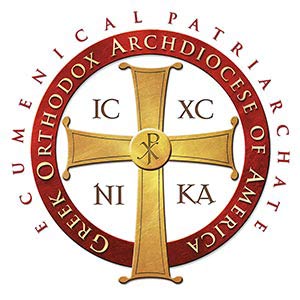Often, contemporary people scorn the idea of humility. They equate it with hypocrisy or self-delusion. Rather than a virtue to be strived for, it is seen as a vice to be averted. In an age when “pride in one’s self,” “self-assertion,” and “a positive self image” are affirmed, humility is either low on the scale of values, or rejected outright.
It’s true there is a false kind of humidly. It is a pretense at appearing meek and unpretentious, as a cover for pride. The 19th century English poet Robert Southey in his poem “The Devil’s Work,” depicts Satan observing us in our shortcomings, and says that the Devil’s “favorite sin is pride that apes humility.
Yet, the place of humility in the Bible and the Church’s tradition is highly regarded. The Old Testament Prophets Micah asks “What does the Lord require of you but to do justice, and to love kindness, and to walk humbly with our God?” (Micah 6:8).
For Jesus, humility is a central idea. In the Parable of the Marriage Feast (Luke 14:7-11) Jesus says “Every one who exalts himself will be humbled, and he who humbles himself will be exalted.” And we’re all families with the Parable of the Pharisee and the Publican where Jesus highlights the contrast between the self-promoting religious leader and the humble repentance of the sinful tax-collector.
So what is the meaning by humility? St. John Chrysostom speaks in his “Homily on Lazarus” about us all living our lives behind masks and disguises. Living those illusions we deceive ourselves and are subject to pride that keeps us from knowing who we truly are before God and in relationship to others and our true inner self. True humility is genuine, honest and true self-knowledge.
Humility is true self-knowing. Self-knowledge is really knowing how far we are from what we are created by God to be. If we fully understand how lacking we are in virtue, goodness, understanding and wisdom, we can’t help but be humble. St. John Cassian said “Only by humility can true judgment be acquired. Humility is therefore indispensable for acquiring true judgment” (Conferences, 2). “Who are they who humble themselves?” asked St. Augustine.
He responds, Those who know they are sinners!” (On the First Letter of John, 1,4).
St. Simeon the New Theologian draws the conclusion: “I pray you, brothers and sisters: let us strive with every means at our disposal to know ourselves . . . When souls undergo purification through penitence and the practice of the commandments, they receive grace to discover themselves completely” (Theological and Ethical Treatises, 9). That’s the true meaning of humility. So there is no surprise that St. John Chrysostom would agree with those criticize false and hypocritical humility when he condemns “unlimited humility in appearance and no humility at all in fact. (On the Priesthood, 3,9). End
Finally, I think we can learn on various plans his argument against those who shun humility today and think it is a detriment to their success in the world. The boldness of self in the light of pride is a tool used by Satan for the downfall of the person, that is why it is so useful to him. If a person thinks that he/she is God’s gift to humanity, they have already fallen into Satan’s trap. Our life does not depend on us, but on God who loves us more than any other created thing. That does not mean when things do not go our way we sit still, it means the opposite. We try and try again until we can succeed with His grace and love. It is impossible to achieve anything on our own without God, even when we sin. However, we have to give thanks to Him for the blessings we receive from Him through our efforts. That is why knowing oneself and Him who created us we can humbly return to Him the blessings He allows us to realize though His love for humanity. AMEN!


 The Greek Orthodox Archdiocese of America announces the creation of the “Greek Orthodox Archdiocese COVID-19 Relief Fund” as an important part of its efforts to support those around the country who have been impacted by the current pandemic.
The Greek Orthodox Archdiocese of America announces the creation of the “Greek Orthodox Archdiocese COVID-19 Relief Fund” as an important part of its efforts to support those around the country who have been impacted by the current pandemic.